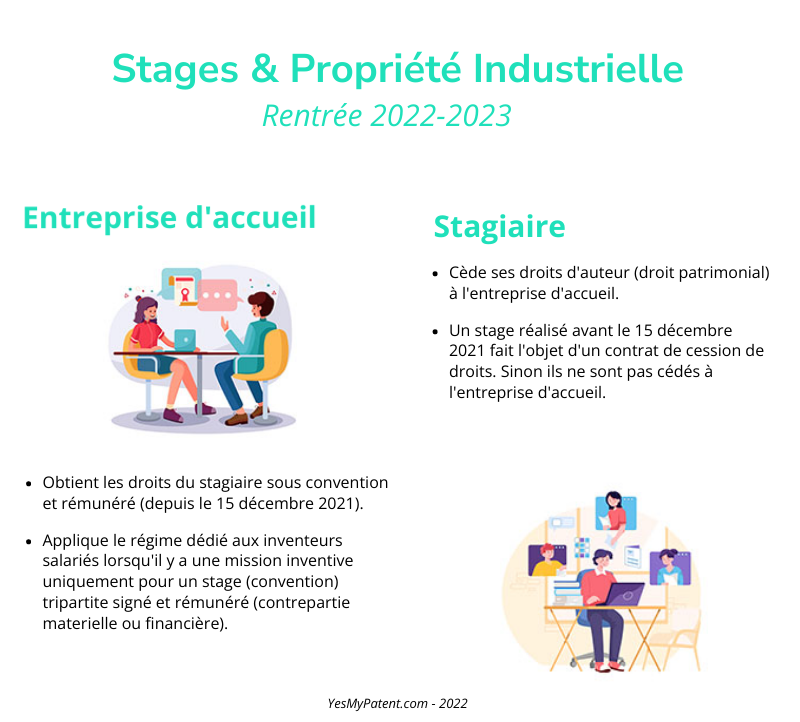An internship is a period during which a learner (student) undergoes training within a company. Trainees are not considered as employees, although in most cases they can have a beneficial activity for the host company. Their presence is governed by a tripartite training agreement between the trainee, the host company and the training structure. As trainees are not covered by an employment contract, their output is not subject to a policy of inventing existing employees. What if the trainee’s creative activity is covered by copyright? What are the implications of involving an intern in your R&D work?
- The trainee is a learner
- Can a trainee be considered an inventor?
- How much should a trainee be paid if he or she is declared an inventor?
- In the short term, what can we do to protect our IP?
- Employee invention policy.
The trainee is a learner
The trainee’s presence is temporary. It can be extended by signing an employment contract. However, the trainee is not expected to take on a replacement role, or to cope with an increase in activity.
Nevertheless, in some situations the trainee can be particularly productive. And that’s a good thing! It’s a sign that the trainee is committed and that his or her apprenticeship is beneficial to both the trainee and the company. To protect the interests of both the intern and the host company, points relating to industrial property must be defined in advance.
Change of legislation on December 15, 2021
Until now, the work produced by an intern belonged to him or her. For example, if an intern writes content for your company’s website, or writes source code as a computer developer, then these elements are subject to copyright. In the same way, the intern may develop a new type of gearbox, which would then fall within the scope of inventions, and therefore of patents.
As the intern was not an employee, the assignment of rights commonly included in employment contracts did not apply. It was therefore necessary (and imperative) to draw up an assignment of rights contract at the end of the internship. Indeed, a creation such as an invention cannot be assigned a priori. This means that productions must exist in a tangible way to be the subject of an assignment. At the end of the internship, it was therefore necessary to sign an assignment of copyright (economic rights) or an assignment of invention, where applicable.
The assignment contract may be the subject of a specific agreement or an amendment to the internship agreement.
| Property law | The author of a play can assign his or her economic rights so that it can be performed in a theater or adapted into an audiovisual work, for example. |
| Moral rights | The author of a play cannot assign his moral rights. He remains the author, even if he assigns his economic rights to enhance the value of his creation. The owners of the economic rights are the beneficiaries. |
Ordinance no. 2021-1658 of December 15, 2021 puts an end to this legal uncertainty by aligning the attribution of software and inventions made by non-salaried employees with the regime applicable to salaried employees and civil servants.
Can a trainee be considered an inventor?
For this new system to apply, and for the trainee to be considered as a salaried inventor, the traineeship must be subject to a training agreement signed by all three parties. The intern must also receive material or financial compensation from the host organization for his or her work. Finally, the intern must be given an inventive mission in the internship agreement. If these three conditions are not met, the common law system applies.
When the trainee has an inventive mission, he or she is obliged to inform the host company. From now on, the rights to exploit the invention and to patent it will automatically vest in the host company.
However, the trainee is appointed as an inventor. Additional remuneration (a bonus) is paid.
| Industrial property | Protection and promotion of innovations, inventions, and commercial or industrial creations. These include patents, trademarks, designs and models, and geographical indications. |
| Intellectual property | Intellectual works: literary and artistic works, inventions, emblems, names and images used in commerce, designs and models. |
How much should a trainee be paid if he or she is declared an inventor?
For the moment, no specific amount is known. This will have to be the subject of a new decree. However, it makes sense to apply the same rules to trainee inventors as to employees, as defined in the employee invention policy.
In the short term, what can we do to protect our IP?
As work progresses, it is advisable to date-stamp the documents concerned, so as to be able to prove your anteriority. In addition, it is important to put in place an employee invention policy as soon as possible, and above all to ensure that the policy in place meets its objectives: to protect the company’s interests and to reward employees correctly.
Time-stamping a document is easy with :
In order to identify the types of documents that should be time-stamped, you may wish to ask your Industrial Property Attorney for advice.
Employee invention policy :
90% of patented inventions are made by employee inventors.
Are these inventions :
- mission inventions?
- attributable non-mission inventions?
- invention outside non-attributable missions?
To define these points via employment contracts and their amendments, and to determine the bonuses to be paid to the salaried employer, it is more than appropriate to call on the services of an Industrial Property Attorney. With his or her knowledge of IP issues and the company’s projects, the I.P.C. will advise you in setting the right strategy.

